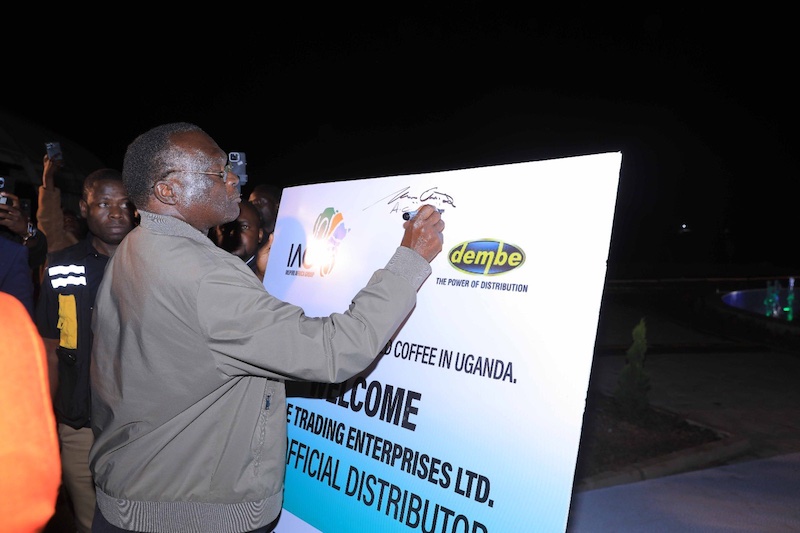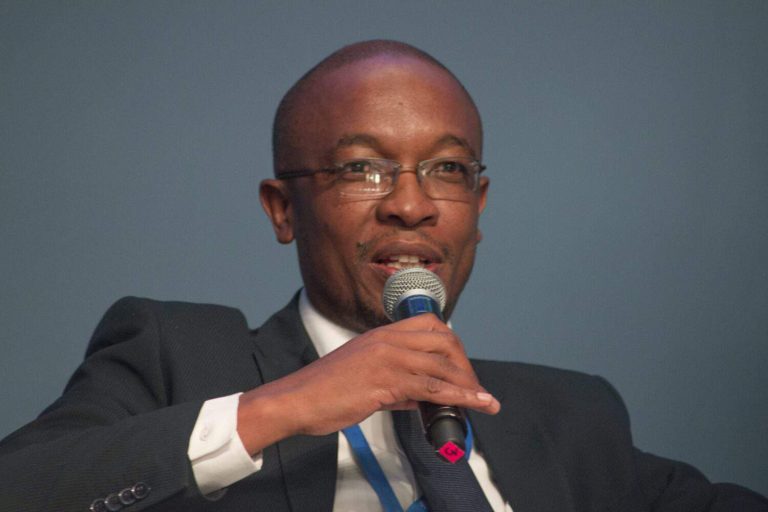
Last week, Chief Justice Alfonse Owiny-Dollo called for the establishment of an agricultural bank and the revival of cooperative societies in Uganda.
Dollo said this while presiding over the International Coffee day celebrations at Inspire Coffee Africa, where he flagged off the first consignment of Inspire Coffee products for both local and international markets.
Ugandan coffee was recently ranked the third best in the world behind Ethiopia’s and Kenya’s by professional coffee tasters in a survey of the top 16 coffee-producing countries, according to the ministry of Agriculture.
In the 12 months leading up to May 2025, Uganda’s coffee exports reached a record 7.43 million 60kg bags, generating $2.09 billion. This represented a year-on-year increase of 22.24 per cent in quantity and 93.61 per cent in value.
“If I were still in elective politics which I left many years ago, I would make coffee growing compulsory in this country,” Owiny-Dollo stated.
He lamented the historical exploitation of Uganda through the export of raw materials such as cotton and coffee to Europe, where they are turned into high-value products and sold back at inflated prices.
“Uganda once took pride in a cotton factory in Lira. We would do the ginning and spinning into thread, export it, and then import expensive finished fabrics. That is a loss for our economy,” he said.
Justice Owiny-Dollo emphasized the need for an agricultural bank and stabilization mechanisms such as a coffee marketing board to protect farmers from price crashes and ensure predictable earnings.
“People should go into coffee farming knowing they won’t suffer losses. They should be clear about what they can earn from an acre,” he added.
He also advocated for extending the Standard Gauge Railway to Rwanda by building on the existing line to Kasese, which would reduce transport costs and save Uganda’s roads from damage. Energy and Mineral Development minister Ruth Nankabirwa called Uganda’s coffee story “promising” and underscored the importance of electricity in driving agroindustrialization.
“You can’t talk about value addition without power. Some politicians have even lost their positions over unreliable electricity,” she said.
Nankabirwa noted that the country is still transitioning from Umeme, with many aging transformers operating beyond capacity, leading to frequent blackouts. UEDCL is currently servicing old transformers and installing new ones to stabilize electricity supply.
“Power is the engine of growth and industrialization. Inspire Coffee is a green factory, and consumers now prefer locally made, eco-friendly products,” she added.
She announced that a dedicated transformer would be installed at Inspire Coffee Africa. The power line is currently 40 per cent complete, and once finalized, the factory will be classified as a large industrial plant qualifying it for the 5-cent electricity tariff.
Inspire Coffee Africa was founded by Nelson Tugume, whose story traces back to his mother’s small coffeebuying business in Ntungamo. She used a modest vehicle to collect coffee from neighbouring areas like Kitwe and resell it at a profit.
Tugume recalled traveling to the White House in Washington, D.C., where he bought a 250g pack of soluble coffee for $79. At the time, he didn’t realize he had been overcharged, but later understood the vast profits made by foreign companies from African produce.
“My parents and neighbours earned only Shs 4,200 per kilo of coffee, sometimes even less. That kind of poverty stifled their potential,” he said.
Despite being one of Africa’s top coffee producers, Uganda earns less than countries that import and process its coffee. Tugume attributes this to low domestic consumption and lack of value addition.
“What drives me is the fear of failure. Many people look up to me. I want to be a success story, not a cautionary tale,” he said.
He thanked the government and the Ugandan people for believing in his dream to process coffee that meets both local and international standards.
“Every time we export raw coffee beans, we export jobs and opportunities. We lose value for money,” Tugume emphasized.
He also thanked President Museveni for championing coffee production both locally and abroad. Gen Charles Otema praised Tugume for inspiring the people of Northern Uganda, where 10,000 hectares of coffee have now been planted. The region is preparing to begin supplying Inspire Coffee factory.
“We suffered under cotton. The Indians used to make us deposit our produce and pay us later. But with coffee, we are sure of the market,” Gen Otema said.



